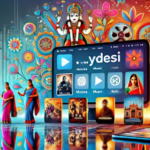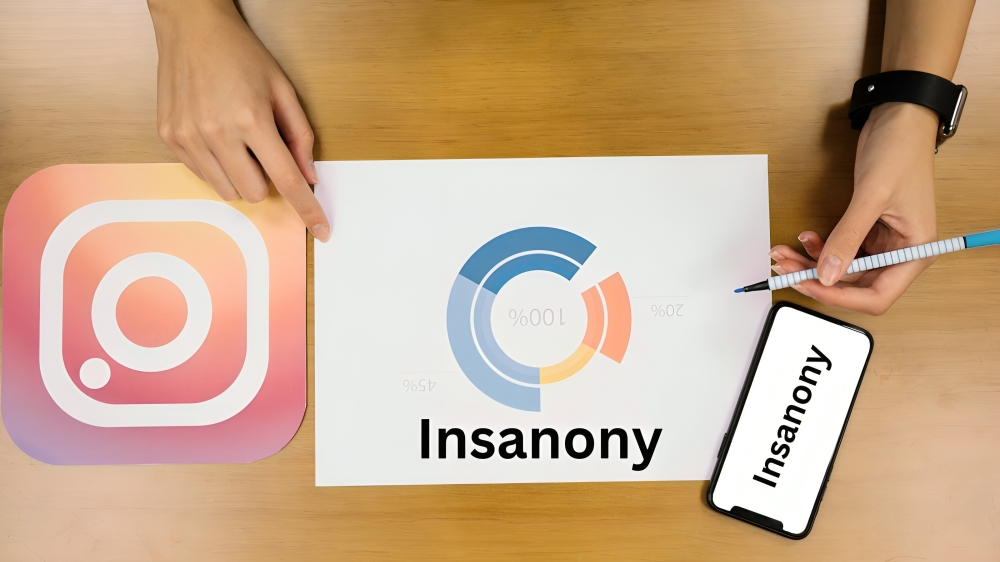Introduction: The Rise of Online Expression
Welcome to the intriguing world of online expression, where anonymity meets insanity to create a fascinating digital landscape known as “Insanony.” In this modern era of social media and virtual interactions, our online identities have evolved from mere usernames to powerful personas that can shape perceptions and influence opinions. Let’s delve deeper into the evolution of online expression and discover how we navigate this ever-changing realm in search of authenticity amidst the chaos.
Evolution of Online Identities: From Anonymous to Insanony
The evolution of online identities has taken a fascinating turn in recent years. What once started as a realm shrouded in anonymity, where individuals could express themselves freely without fear of judgment, has now transitioned into a space where authenticity is key.
From the early days of internet forums and chat rooms where users hid behind pseudonyms to the emergence of social media platforms like Facebook and Instagram, the shift towards transparency and personal branding is evident. With the rise of influencer culture and personal branding, individuals are no longer satisfied with being just another faceless username online.
Enter “Insanony” – a term that encapsulates the fusion of authenticity and individuality in online expression. It represents a new wave of digital identity where users strive to be genuine while still maintaining a sense of mystery and intrigue.
As technology continues to evolve, so too will our online personas. The journey from anonymous to Insanony highlights the dynamic nature of self-expression in the digital age.
The Power of Anonymity: Pros and Cons
Anonymity in the online world is like a double-edged sword, offering both liberation and potential risks. On one hand, hiding behind a screen name allows individuals to freely express their thoughts without fear of judgment or repercussions. It can empower people to share their true feelings and opinions on sensitive topics that they might not feel comfortable discussing openly.
However, this veil of anonymity also opens the door to negative behavior such as cyberbullying, trolling, and spreading misinformation. The lack of accountability can embolden some individuals to engage in harmful actions that they wouldn’t dare do face-to-face.
At the same time, anonymity can be a shield for whistleblowers and activists who rely on it to protect themselves from backlash while exposing corruption or injustice. It serves as a tool for those fighting for social change by providing them with a platform where they can speak out without fear of retaliation.
In essence, anonymity grants freedom but comes with responsibilities. It’s essential for users to wield this power wisely and ethically so that it contributes positively rather than harmfully to the digital realm.
The Impact of Social Media on Personal Expression
Social media has revolutionized the way we express ourselves online. With platforms like Instagram, Twitter, and Facebook at our fingertips, it’s easier than ever to share our thoughts, feelings, and experiences with a global audience. The instantaneous nature of social media allows for real-time updates and interactions, shaping how we present ourselves to the world.
However, this constant connectivity also comes with its drawbacks. The pressure to curate a perfect online persona can lead to feelings of inadequacy or comparison. The fear of judgment from others can stifle authentic expression and creativity. It’s essential to strike a balance between sharing authentically while still maintaining boundaries in an increasingly digital world.
Despite its challenges, social media offers a powerful platform for amplifying voices that may have previously gone unheard. It has the potential to spark important conversations, connect like-minded individuals across borders, and create positive change in society. As we navigate the complexities of personal expression in the digital age, it’s crucial to approach social media mindfully and intentionally.
Finding Balance: Maintaining Authenticity in an Online World
In the vast and ever-evolving landscape of the internet, maintaining authenticity can sometimes feel like a tightrope walk. It’s easy to get caught up in crafting an online persona that may not accurately reflect who we truly are. Balancing self-expression with privacy and staying true to yourself amidst the noise of social media can be challenging.
One way to navigate this digital dilemma is by being mindful of what you share online. Consider if your posts align with your values and beliefs. Authenticity shines through when our online presence mirrors our real-life selves.
Remember, it’s okay to have different personas for different platforms as long as they all stem from a place of honesty. Finding balance means being selective about what aspects of your life you choose to showcase online while still allowing room for growth and evolution.
Staying authentic in an online world requires introspection, self-awareness, and a willingness to adapt as needed.
Case Studies: Famous Examples of Online Expression and Its Effects
In the realm of online expression, there have been notable cases that have shaped how we perceive digital identities. Take for instance the case of Banksy, the elusive street artist who used anonymity to amplify his message on social and political issues. By staying anonymous, Banksy’s art became a powerful tool for sparking conversations and challenging norms.
On the other hand, there are instances where online anonymity has led to negative consequences. The case of “Doe v. Cahill” highlighted the complexities of defamation laws in relation to anonymous speech online. The freedom to express oneself anonymously can sometimes blur ethical boundaries and raise questions about accountability.
Moreover, consider the rise of influencer culture where individuals curate idealized versions of themselves online. The pressure to maintain a certain image can lead to mental health struggles behind-the-scenes, showcasing the double-edged sword of personal expression in a digital age.
These case studies underscore the intricate relationship between identity, expression, and impact in an increasingly interconnected world.
Managing Your Digital Identity: Tips for Navigating the Online Landscape
In the vast digital world we navigate today, managing our online presence has become crucial. Your digital identity is like your online fingerprint – unique and lasting. To maintain a positive image, consider what you share and how it reflects you.
Think before posting. Once it’s out there, it’s hard to take back. Privacy settings are your friends – use them wisely to control who sees what. Remember that everything can be scrutinized by anyone with access.
Being mindful of your interactions is key; engage respectfully in discussions and debates. Constructive dialogue leaves a lasting impression while avoiding unnecessary conflicts protects your reputation.
Regularly review your digital footprint, ensuring old content aligns with the image you want to portray now. Stay informed about platform policies and updates for a seamless online experience that serves you well as Insanony continues to redefine modern expression.
Conclusion: The Ever-Evolving Nature of Online Expression
As we journey through the vast expanse of the internet, it becomes clear that online expression is a dynamic and ever-evolving entity. From the early days of anonymity to the current era of Insanony, where individuals showcase their authentic selves with a touch of creativity, our digital identities continue to shape how we interact and connect with others.
The power of anonymity has its advantages and drawbacks, as seen in various forms across social media platforms. However, as we navigate this virtual landscape, finding a balance between expressing ourselves authentically while maintaining privacy is crucial.
By examining famous examples of online expression and its effects on both individuals and society at large, we can learn valuable lessons on managing our digital identities responsibly. Remembering that what we post online can have lasting repercussions underscores the importance of thoughtful consideration before hitting that “share” button.
In this fast-paced digital age, where trends come and go in the blink of an eye, staying true to oneself amidst the noise is essential. As technology continues to advance and reshape how we communicate, adaptability and mindfulness will be key in navigating the ever-changing terrain of online expression.
Embracing authenticity while being mindful of our digital footprint will ensure that our voices are heard amongst the cacophony of information swirling around us. So remember: whether you choose to remain anonymous or boldly step into Insanony territory, let your voice be a beacon of positivity and truth in this vast sea called cyberspace.














